Sophie Neubauer
Online Fine-Tuning of Carbon Emission Predictions using Real-Time Recurrent Learning for State Space Models
Aug 01, 2025Abstract:This paper introduces a new approach for fine-tuning the predictions of structured state space models (SSMs) at inference time using real-time recurrent learning. While SSMs are known for their efficiency and long-range modeling capabilities, they are typically trained offline and remain static during deployment. Our method enables online adaptation by continuously updating model parameters in response to incoming data. We evaluate our approach for linear-recurrent-unit SSMs using a small carbon emission dataset collected from embedded automotive hardware. Experimental results show that our method consistently reduces prediction error online during inference, demonstrating its potential for dynamic, resource-constrained environments.
Scalable Offline Reinforcement Learning for Mean Field Games
Oct 23, 2024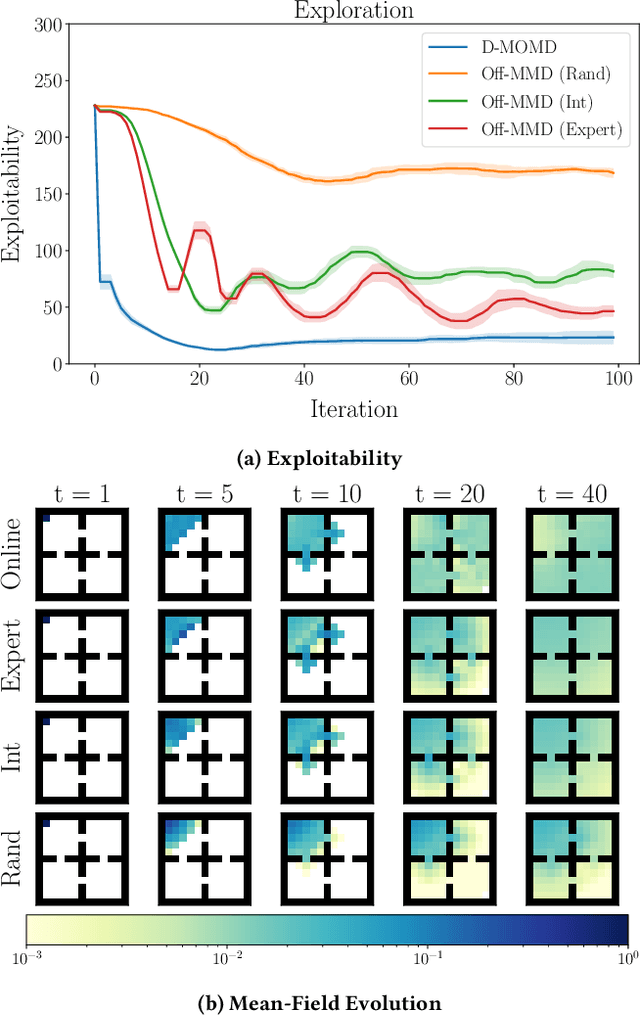



Abstract:Reinforcement learning algorithms for mean-field games offer a scalable framework for optimizing policies in large populations of interacting agents. Existing methods often depend on online interactions or access to system dynamics, limiting their practicality in real-world scenarios where such interactions are infeasible or difficult to model. In this paper, we present Offline Munchausen Mirror Descent (Off-MMD), a novel mean-field RL algorithm that approximates equilibrium policies in mean-field games using purely offline data. By leveraging iterative mirror descent and importance sampling techniques, Off-MMD estimates the mean-field distribution from static datasets without relying on simulation or environment dynamics. Additionally, we incorporate techniques from offline reinforcement learning to address common issues like Q-value overestimation, ensuring robust policy learning even with limited data coverage. Our algorithm scales to complex environments and demonstrates strong performance on benchmark tasks like crowd exploration or navigation, highlighting its applicability to real-world multi-agent systems where online experimentation is infeasible. We empirically demonstrate the robustness of Off-MMD to low-quality datasets and conduct experiments to investigate its sensitivity to hyperparameter choices.
PyHopper -- Hyperparameter optimization
Oct 10, 2022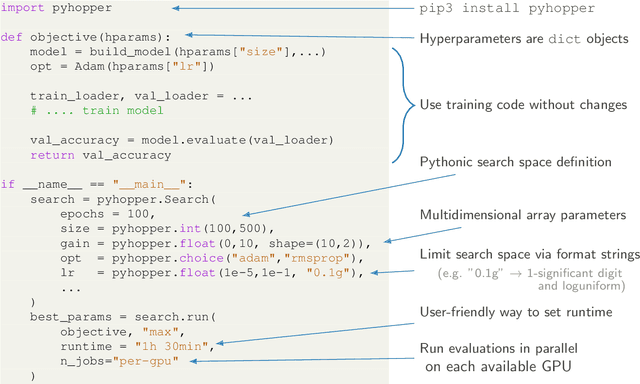
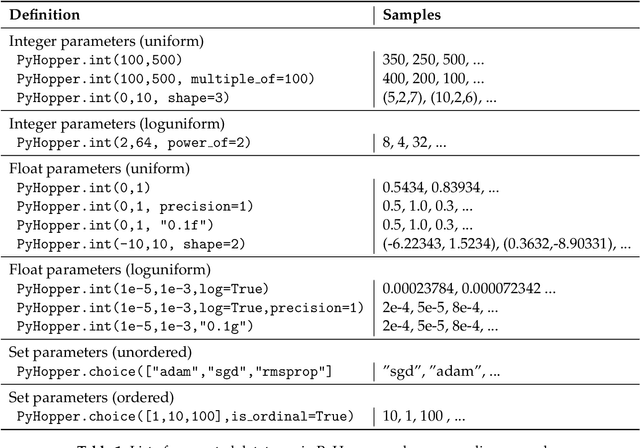
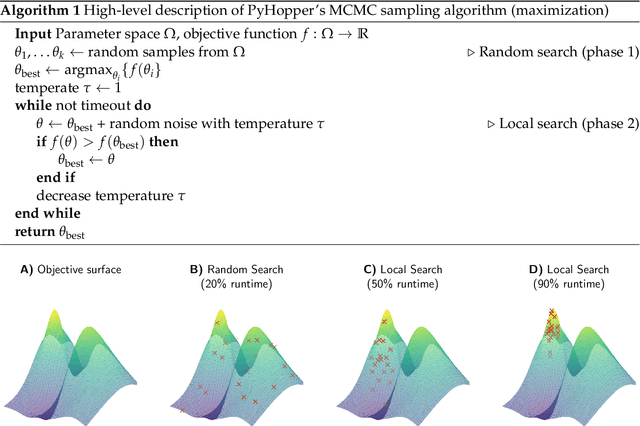
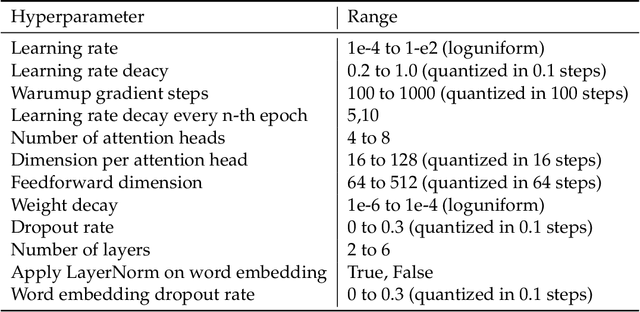
Abstract:Hyperparameter tuning is a fundamental aspect of machine learning research. Setting up the infrastructure for systematic optimization of hyperparameters can take a significant amount of time. Here, we present PyHopper, a black-box optimization platform designed to streamline the hyperparameter tuning workflow of machine learning researchers. PyHopper's goal is to integrate with existing code with minimal effort and run the optimization process with minimal necessary manual oversight. With simplicity as the primary theme, PyHopper is powered by a single robust Markov-chain Monte-Carlo optimization algorithm that scales to millions of dimensions. Compared to existing tuning packages, focusing on a single algorithm frees the user from having to decide between several algorithms and makes PyHopper easily customizable. PyHopper is publicly available under the Apache-2.0 license at https://github.com/PyHopper/PyHopper.
 Add to Chrome
Add to Chrome Add to Firefox
Add to Firefox Add to Edge
Add to Edge